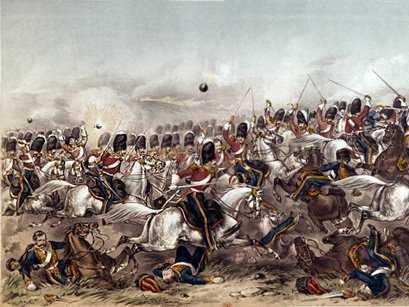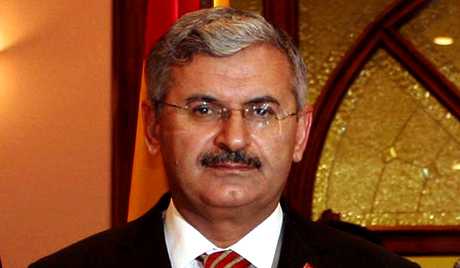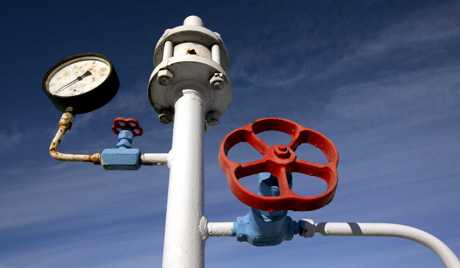March 22, 2013 – 1:44pm, by Joshua Kucera
The history of the Caucasus has long been dominated by three surrounding powers: Turkey,Russia, and Iran. And while Europe and the U.S. have become part of the equation in recent years, the region is still likely to be subject to the influences of its big neighbors to the west, north, and south. And so a big project by the Washington think tank Center for Strategic and International Studies on “The Turkey, Russia, Iran Nexus” is particularly interesting for observers of the Caucasus. CSIS has just released a report (pdf) examining how the various bilateral relationships (i.e. Turkey-Russia, Russia-Iran, Turkey-Iran) interact in political, economic and other ways. The report notes that Russia is not as worried about Iranian influence in the Caucasus as it is about Turkey:
Moscow is not enthusiastic about any state increasing its influence in Central Asia and the Caucasus, be it Turkey, Iran, China, the United States, or whomever. As then-President Dmitri Medvedev stated in September 2008 just after the five-day Georgia War, Russia regards the post-Soviet states as its “zone of privileged interests.” Having noted that, Iran’s presence and activities in Central Asia have been viewed as very much aligned with those of Moscow while Turkey’s as neither significant nor malign enough to draw too much attention.
The picture in the South Caucasus, however, is quite different. First, this region is viewed much more strategically important for Moscow than Central Asia because of its proximity to the North Caucasus, and its dual role as an energy-producing and key transit region to Europe and the Middle East. Second, other international players, including Iran and Turkey but especially the United States and Europe, have been far more active. Third, the region has been much more prone to conflict since the Soviet collapse, including for the first time since the Afghan campaign in the 1980s the deployment of Russian troops abroad in the 2008 Georgia War. For now, Turkish policies in the South Caucasus are probably a bigger concern for Moscow than those of Iran. Many Russian analysts talk of a North/South axis of Russia, Armenia, and Iran that is opposed to an East-West axis of Turkey, Georgia, and Azerbaijan.
Although Turkey has its hands more than full at the moment with the Arab Spring and a number of setbacks in its supposed “zero problems” foreign policy, the Russians expect that sooner or later Ankara will return to the Caucasus and ultimately Turkish influence will grow. Virtually all of the national and ethnic groups in the Caucasus have large diaspora populations in Turkey. The most natural partner for Turkey is secular and Islamic Azerbaijan. Already Turkey and Georgia and Azerbaijan are linked through energy pipeline and transit infrastructure, and at some point, it seems inevitable that Turkey and Armenia will reengage more successfully, open their borders, and extend trade and transit ties. All of these developments come to some degree at the expense of traditional Russian domination. Still, for now at least, Turkey is reluctant to provoke the ire of Moscow in the Caucasus, especially as it is highly dependent on imports of Russian gas (58 percent of gas imports in 2012) and oil (which dropped from 40 to 12 percent of imports between 2009 and 2011). This situation of extreme dependence could shift as the regional gas market is experiencing great change, and Turkey seeks to diversify its energy imports…
Some Russian officials… assess that Turkey is becoming more Islamist under the Justice and Development Party (AKP) government, and that the Turkish General Staff is no longer an effective defender of secularism or check on Prime Minister Erdoğan’s power. Some Russians also fear that Turkish cultural, religious, and educational activities in the Caucasus, Crimea, and Central Asia with Circassian and other Muslim communities could, over time, foster radical Islamist movements in Russia and neighboring states.
Iran mistrusts Russian influence in the Caucasus, but is unwilling to confront Moscow over it, considering the region to be of lesser importance to other issues in their relationship:
The Soviet legacy still shapes the strategic landscape and Russia retains a dominant role. Ankara seeks to promote interdependence among the three South Caucasus states in order to strengthen their sovereignty and to expand commercial and energy links to Turkey, though following the rejection of its 2009 effort to normalize relations and open the Turkish-Armenian border, Turkey has moved more firmly behind Baku. Iran’s engagement in the region includes deepened ties to Armenia, efforts to intimidate Azerbaijan, but caution with respect to Nagorno-Karabakh. Iran does not want Russia heavily involved in the South Caucasus, but has avoided confronting Moscow, and has benefited from a mistrust of Turkey in the region. Washington’s interests of stability, enhanced sovereignty, democratization, and diversification of commercial relations are closely aligned with Turkey’s.
In the aftermath of the 2008 Georgia War, Iran did become more active diplomatically in the Caucasus to offset Russian influence and protect its own interests in developing economic ties and energy routes there. While tensions with Azerbaijan have deepened, Tehran made a conscious decision to avoid causing problems for Moscow in the Caucasus. In part, this restraint seeks to induce Moscow to oppose further sanctions on Iran. The insurgents and foreign fighters operating in the North Caucasus are Sunni Salafists not aligned with or supported by Iran.
Russian and Turkish interests clash on the Caspian, in terms of the proposed Trans-Caspian pipeline:
[O]ne of Russia’s most important foreign policy goals linking the Caucasus and Central Asia… is to prevent any agreement between Azerbaijan and Turkmenistan that would lead to a Trans-Caspian pipeline that would bring Turkmen gas West. Russia adamantly opposes this development and will go to great lengths to prevent it since large quantities of Turkmen gas going West could further erode Gazprom’s hegemonic position in Europe, still Russia’s most important gas- consuming market. Turkey’s interests clearly do not coincide with Russian interests, and Ankara has tried to mediate the dispute between Azerbaijan and Turkmenistan, to no avail so far. At this point the Russian position is quietly supported by Azerbaijan, which wants to ensure that all of its gas sup- plies find reliable and lucrative markets before allowing for such a large competitor as Turkmenistan to enter Western markets.
The report is apparently just the first part of a larger project; the next installment will address how this triangle of relationships affect U.S. policies.






